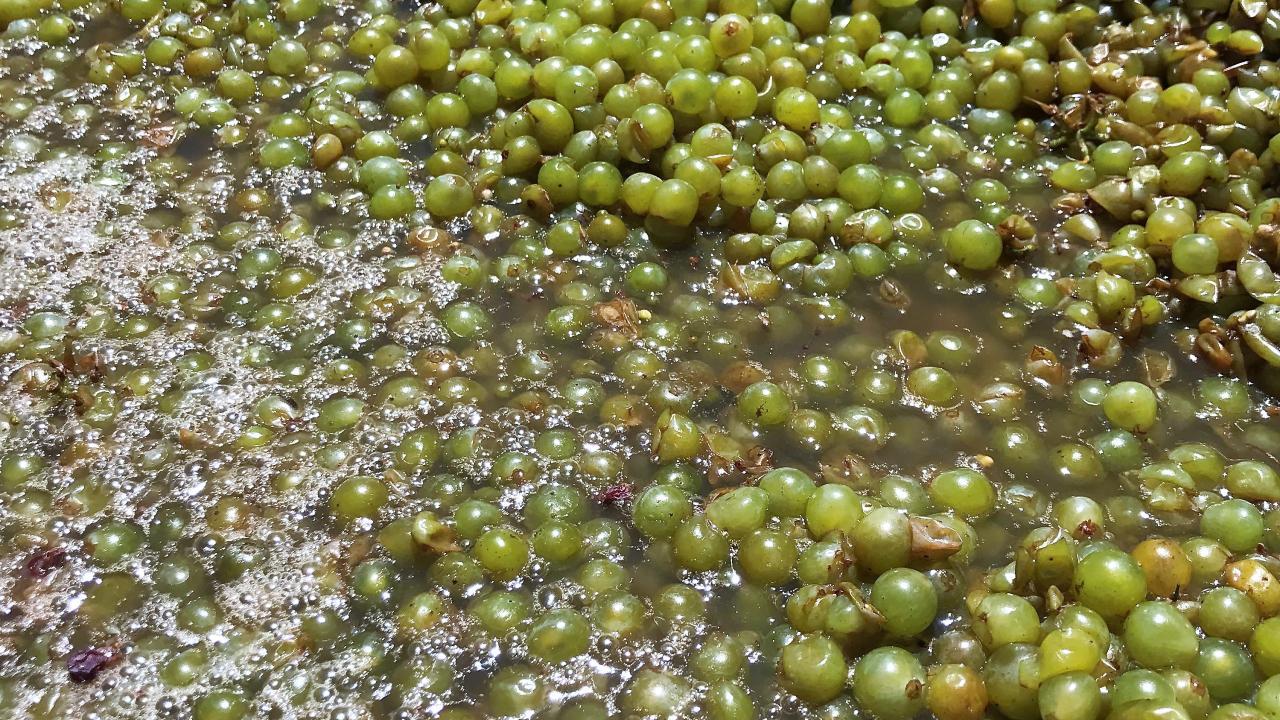
Chardonnay Marc: A ‘Trifecta’ of Health, Taste and Sustainability
UC Davis research leads to development of food ingredient using winemaking byproduct
UC Davis researchers are providing more insight into how grape skins and seeds, which usually go to waste during the making of chardonnay wine, may be a valuable and healthful ingredient in new food products.
A review paper published by the Journal of Agricultural and Food Chemistry outlines how chardonnay marc can serve as a model for developing plant-based natural product food ingredients, and perhaps make upcycling agricultural byproducts relevant to other post-harvest processing scenarios.
“Chardonnay marc is a trifecta of health, taste and sustainability,” said Roberta Holt with the Department of Nutrition and lead author of the paper.
Holt said grape marc, which is the remaining pulp, skin and seed after pressing, is an underutilized byproduct of chardonnay winemaking. The paper highlights that the 2021 California wine crush generated more than 121,000 tons of chardonnay wine grape marc.
“What’s interesting about chardonnay marc is that it’s full of these valuable compounds that can potentially be used in the food system,” Holt said.
UC Davis researchers have been building on years of research into the health benefits due to the concentration of certain naturally occurring compounds in chardonnay marc. The paper illustrates that grape marc contains high levels of flavanols, which have been shown to have positive effects on the cardiovascular system. Additional research suggests the presence of other healthy bioactives, such as oligosaccharides, a class of indigestible carbohydrate that may help build a stronger immune system and improve gut health.
“We have to become smarter about how we are harvesting value from the byproduct so that we can help the sustainability of the industry and still get the bioactive ingredients that are needed for addressing some of the chronic health issues like cardiovascular disease, obesity and diabetes,” said Professor Daniela Barile with the Department of Food Science and Technology and one of the co-authors of the paper.
The research on chardonnay marc is a years-long collaborative effort by UC Davis, USDA Agricultural Research Service and Sonomaceuticals, LLC, which has helped fund the project. Sonomaceuticals has developed a process to dry and mill the grape marc and created WellVine Chardonnay Marc, an ingredient that can be added to food products. Vine to Bar, a line of dark chocolate products released earlier this year, contains 15% of the grape marc (read more here).
“Here’s a product that makes you feel good knowing that you are making a positive social impact and supporting agriculture, and it’s good for your health and it tastes good,” said Selina Wang with the Department of Food Science and Technology and one of the co-authors. “Consumers literally have the opportunity to taste the difference UC Davis research is making.”
Holt said over the next year, the team of UC Davis researchers plan to start clinical trials to demonstrate the impact of any dietary bioactive on health from chardonnay grape marc.
“We still have a lot of work ahead of us, and we’re ready to tackle the challenges ahead with this multidisciplinary team,” said Wang.
Other listed paper co-authors: Xueqi Li, Department of Food Science and Technology; Carl Keen, Department of Nutrition; Harold Schmitz, Graduate School of Management; Ilias Tagkopoulos, Department of Computer Science and Genome Center; and researchers from the University of Tennessee, Knoxville and Sonomaceuticals, LLC.
Media Resources
- Roberta Holt, Department of Nutrition, rrholt@ucdavis.edu
- Selina Wang, Department of Food Science and Technology, scwang@ucdavis.edu
- Daniela Barile, Department of Food Science and Technology, dbarile@ucdavis.edu
- Tiffany Dobbyn, College of Agricultural and Environmental Science, tadobbyn@ucdavis.edu
